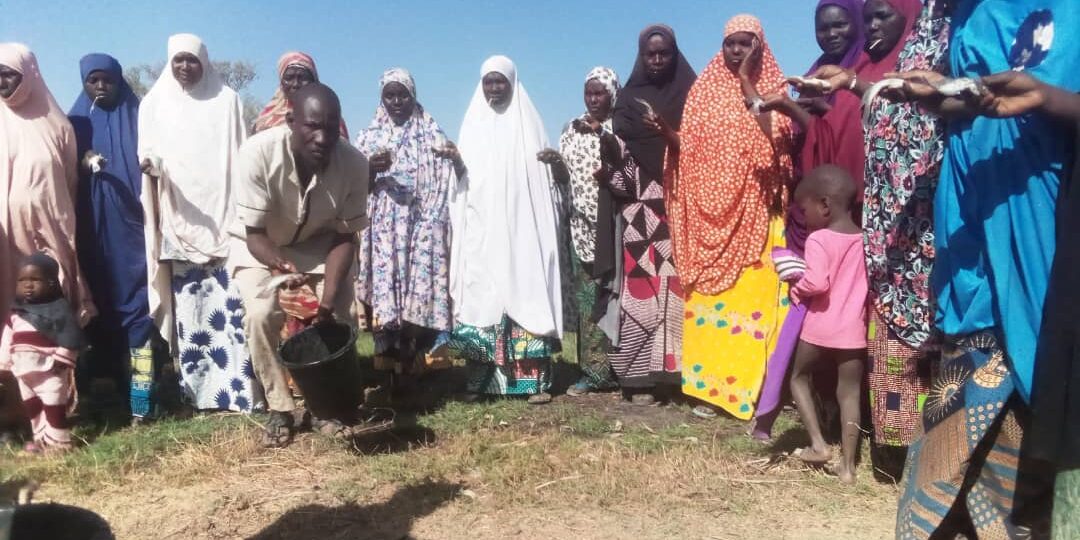A wave of grassroots mobilizations for national sovereignty has been happening in countries including Mali, Burkina Faso, and Niger. Military uprisings have taken over power and pushed French military forces out of their territories. These groups are facing external control over natural resources and have received support from different sectors of the population. Niger, for example, is considered the world’s third largest uranium producer, although, to this day, nearly all uranium in the country has been mined by French companies, in a neocolonialist exploitation model that has endured after the country’s independence in the 1960s.
In July 2023, when a military uprising ousted the then president of Niger, harsh sanctions were applied by the West, affecting the entire population, especially people in rural areas. Imperialist pressure spearheaded by France has been pushing for an intervention in the country by the military forces of the Economic Community of Western African States (ECOWAS), which has been rejected by the African Union, and, more emphatically, by its neighboring countries Burkina Faso and Mali, which are members of the Alliance of Sahel States. Amid this context, La Via Campesina and other grassroots organizations have been leveraging campaigns to denounce the imperialist sanctions and meddling in the country and to defend Nigerien peasants. “The path to real peace in West and Central Africa lies in the full sovereignty of the people. Neocolonial interventions must cease,” the organization stated in 2023.
To understand the current political context and the challenges facing grassroots struggles for sovereignty in the country, Capire spoke with Aminata Gado, a member of the Niger Peasant Platform [Plateforme Paysanne du Niger—PFPN], connected to La Via Campesina. Read the interview below.
In July 26th, 2023, Niger’s presidential guard moved against the country’s previous president, Mohamed Bazoum, and led a military uprising that brought to power a military junta led by General Abdourahamane “Omar” Tchiani. Can you briefly tell us about what was happening at the time and what the situation of the country has been like in the past nine months?
The reasons that led the military to take over power were the following: growing insecurity across all regions, the government’s poor management, impunity, clannishness, poverty. All these maladies contributed to keeping the country completely dependent, while Niger is full of numerous mineral riches that are wasted by the imperialists supported by local leaders.
As soon as they rose to power, the military were supported by the population, in a patriotic boom driven by the long-awaited revolution. Nine months since then, the situation in the country has changed: the new leaders have nationalized certain mineral resources, the country’s governance is transparent, and the population’s opinions are taken into consideration—while before they rose to power, the dictatorship ruled everything. In the diplomatic field, Niger is freely choosing its partners. Insecurity is declining, peacefulness reigns in the country, the population is feeling much safer with the military, the culture of civility and patriotism is maintained among all citizens. However, the closing of the borders with Nigeria and Benin has resulted in reduced transactions and earnings for the population—because Niger is landlocked—, as well as in increasing prices of products and foodstuffs.
Can you provide some context about this political moment and explain why military insurrections receive so much support from the population?
As long as governments are poorly managed, there will be coups in African countries. But the coups staged in Mali, Burkina Faso, and Niger are life-saving, liberating. They enjoy people’s support because the three leaders have introduced, in their system of government, the ideas of patriotism, revolution, refoundation, and total independence of the three countries to force neocolonialism out. The three leaders have shown the people the plundering of natural resources perpetrated by France and the United States, countries that claim to be rich while exploiting the so-called poor countries, which are not really poor, but rather over-exploited. The wealth of our three countries will no longer be in the hands of imperialists, and will now be controlled by local leaders.
Not only there is the constant threat of a military attack by the armed forces of the members of the Economic Community of Western African States (ECOWAS), supported by France in its attempt to resume uranium mining operations in Niger, but the Nigerien people is also enduring the sanctions applied by the colonizing country and the United States. What, in practice, do these sanctions mean? How do they affect the people, especially women and peasants?
Unfair, inhumane, sadistic sanctions have been imposed on Niger. The threat of a military attack by the ECOWAS and France has led to a shortage of medications in drugstores—which has caused many deaths—, extreme energy shortages, and shortage of food and high food prices, and has limited the movement of entire populations.
These sanctions have hit women and peasants the hardest. These people’s purchasing power has decreased due to the shortage and rising prices of basic products. Power outages and the lack of medications in drugstores have forced women to give birth under deplorable conditions. Poverty has increased among them. As for peasants, insecurity stops them from going to the countryside; some have been murdered; several have had their cattle stolen. There has been a massive displacement of families, and women and children are homeless, deprived from their belongings.
The struggle against imperialism, capitalism, and sovereignty is deeply rooted in what happened in Niger. Can you talk about the grassroots struggle in the country today? What role do women and peasants play in this struggle for sovereignty and peace?
Niger’s sovereignty is indeed deeply rooted in all Nigerien citizens, and that struggle will continue until our final victory.
Women have been at the forefront of all grassroots struggles in Niger, from Kassai to Saraounia Mangou, including the historical march of May 13th, 1992, when women demanded to be part of the sovereign national conference, all the way to the events of July 26th, 2023, when women remained day and night at the Place de la Resistance.
It’s women who provided food and fresh water to those resisting until the French troops left. Women and peasants have given money and products to solidarity funds for the sovereignty of the country.




